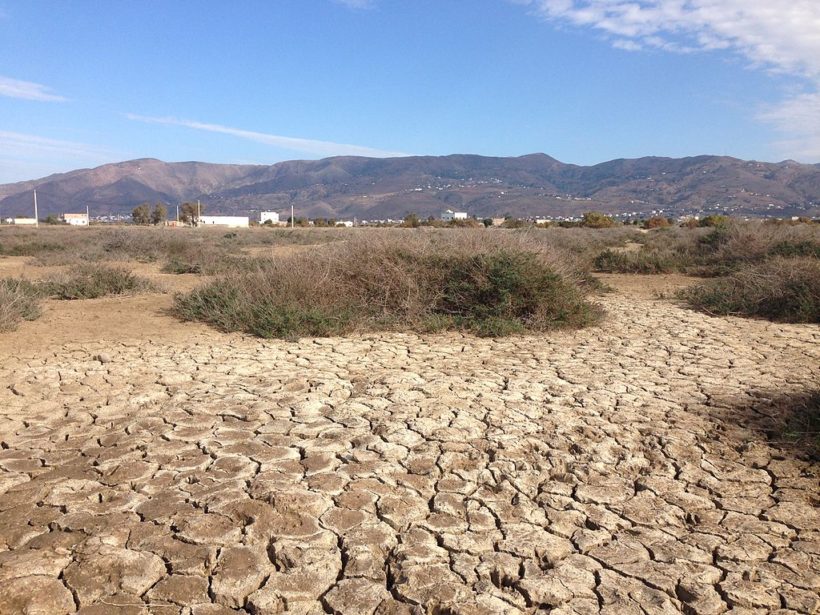

By SHIRIN HAKIM & MIRIAM ACZEL
The relationship between climate change and security has become a point of critical debate between researchers and policymakers, as they grapple with differing and overlapping impacts of global interdependencies, socio-political changes, human mobility, and increasing urbanization and climate change.
Climate change is causing increased frequency of extreme weather events, including increased flooding, severe droughts, and global warming. The melting of ice sheets is accelerating the rate of sea level rise, threatening coastal cities, island nations, and other low-lying territories. Effects of climate change are reducing crop yields, increasing water scarcity, leading to widespread famine and other effects on human livelihood. In some cases, these have forced ‘climate refugees’ to leave their homes in order to meet their basic human needs, including access to water, food, electricity, and shelter. As a result, climate change is becoming viewed as a severe security issue. In 2015, the United States National Security Strategy recognized global climate change as a key threat to national security.
In December, 2017, the UN Security Council held its first meeting on climate and security, fostering an official home for these discussions, delegating a “climate change and security officer” to serve the UN Secretary General and relay information regularly to the UN Security Council. On July 20th, 2017, the United Kingdom Government’s Department for International Development announced their plans for the new Centre for Global Disaster Protection, an initiative dedicated to collaborations among researchers, insurance firms, and policymakers on how to develop support mechanisms for the poorest nations to improve disaster preparedness to lessen the economic burden of climate-related disasters.
Global humanitarian crises, such as the conflicts in Syria, have led stakeholders – especially at the international level–to question the ‘root causes,’ in order to develop better policy measures that can prevent and ‘sustain peace’. At times, this has led to an oversimplification of potential conflict causes, with climate change as a driver being a particularly strong narrative. While the media and policymakers have been quick to adopt climate change as a threat multiplier, researchers have fiercely debated the supporting evidence.
Policymakers and a collective of NGOs have brought the climate-security debate to the forefront of global policy over the last 18 months. A UN Security Council (UNSC) debate, hosted by Sweden in July 2018, discussed the role of climate change in ongoing conflicts in Iraq and the Lake Chad Basin.

For example, in the Lake Chad Basin, climate change contributes to erratic rainfall patterns that impact livelihoods, exacerbate issues of economic exclusion and lead to increased pressure to join armed groups.
The UNSC debates and initiatives like the Planetary Security Initiative have repeatedly called for better linking up of researchers – across disciplines, with policymakers and practitioners – to ensure the best knowledge on climate-related security risks is reaching decision-makers.
Despite a strong cohort of UK researchers, with deep expertise on issues which could help to elucidate the climate change and security relationship, there is still a need for greater policy and practice uptake. This is the same scenario for many regions, especially those in the global south. An ‘Expert Working Group on Climate-Related Security Risks’ was launched at the July United Nations Security Council Debate, which aims work directly with researchers globally to produce timely, non-partisan, assessments.
In an effort to highlight opportunities for researchers, practitioners, policy makers and others to move towards solutions to these pressing global problems, we partnered with the Grantham Institute for Climate Change at Imperial College London to host an event where panelists from a range of different backgrounds and experiences could discuss these issues. Our goal was to start an open forum to encourage dialogue and collaboration. Held at Imperial College in November, the panel event brought together speakers to present their work on climate and security relationships and outline how research can be better represented in relevant policy work.
We are thankful to the Grantham Institute for Climate Change for enabling us to host this event, and to our expert panelists and our audience for engaging in this important dialogue. Stay tuned for our follow up post, where we will provide a recap of this exciting event!
Editor’s note: this article is the second in a series on security implications of climate change. Read the previous article here



Leave a Reply